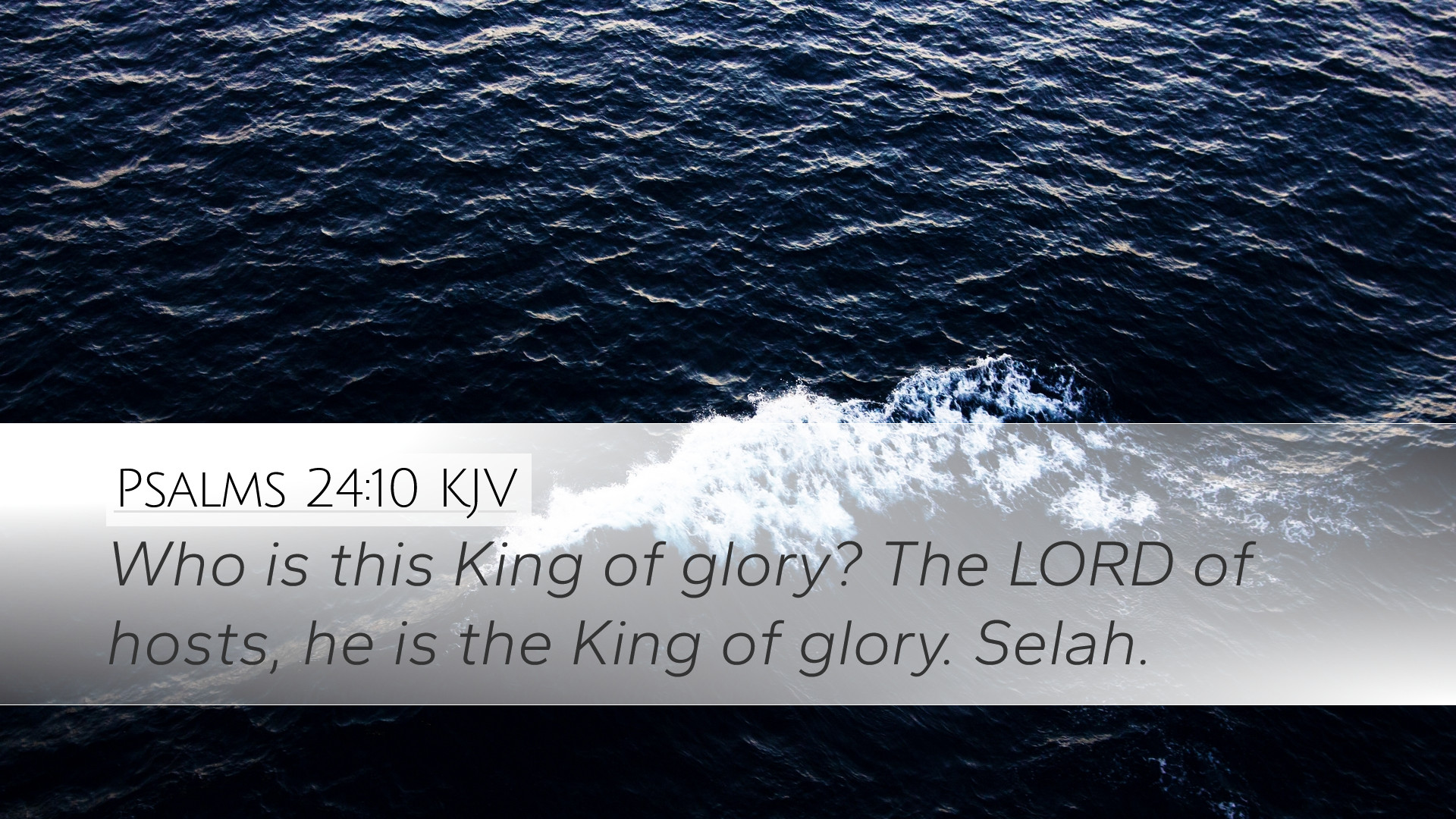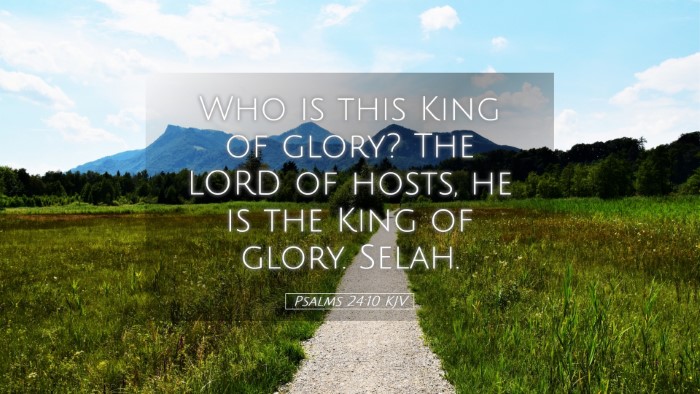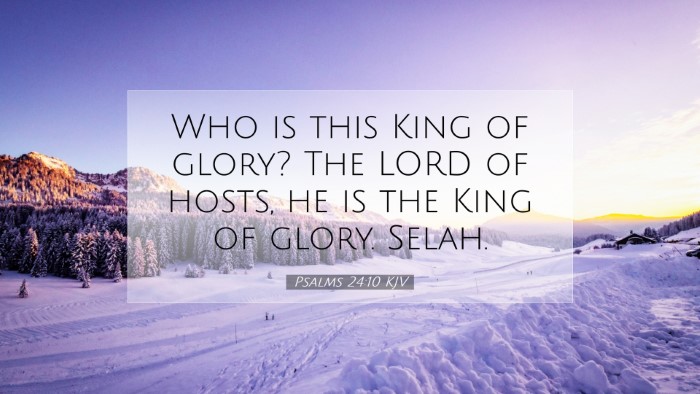Commentary on Psalms 24:10
Psalms 24:10: "Who is this King of glory? The Lord of hosts, he is the King of glory. Selah."
This verse concludes the vivid description of God’s majesty and power, presenting Him not just as a deity but as the supreme sovereign, the "King of glory." Here, the psalmist evokes a reflection on the identity and attributes of God that are worthy of worship and reverence.
Introduction
The Book of Psalms is a rich tapestry of songs and poems that express the heart of worship, lament, and praise. Psalms 24, attributed to David, conveys a profound recognition of God’s sovereign authority over creation and His role as the redeemer of His people. The rhetorical question posed in this verse invites the reader to contemplate the greatness of God as not only majestic but also intimately involved in the world.
The Identity of the King
The phrase "Who is this King of glory?" draws attention to the profound nature of God. Each public domain commentary offers a unique perspective:
- Matthew Henry notes that this question acts as a climactic moment in Psalm 24, encouraging the reader or listener to meditate on the divine attributes of God. God’s glory is not merely external but is demonstrated in His righteousness and in His mighty acts of deliverance.
- Albert Barnes expands on the grandeur of God’s titles, emphasizing the significance of the "Lord of hosts." This title alludes to God’s command over celestial armies and illustrates His unparalleled power. The acknowledgment of God as the King of glory reflects the recognition of His supremacy in both heaven and earth.
- Adam Clarke focuses on the implications of God being the King of glory in the context of worship. He highlights how understanding God’s glory presents a clear incentive for believers to approach Him with reverence and awe.
The Beauty of Glory
The two titles used for God in Psalms 24:10—“Lord of hosts” and “King of glory”—offer a profound reflection on His nature. The use of “glory” speaks of God’s renown, splendor, and the weight of His majesty. In understanding God’s glory, one must also consider heart attitudes reflected in worship:
- Divine Sovereignty: The emphasis on God as King suggests His governance over all creation. Both Henry and Barnes remark upon the accessibility of God’s glory, inviting believers to understand their position before this mighty King.
- Worship in Response: Clarke elaborates on the necessary response from believers who recognize God’s glory. Worship is not merely reverent singing; it comes from a deep understanding of who God is and an appreciation for His works in the life of the faithful.
- Corporateness of Worship: This verse indicates a collective understanding of God’s kingship and glory, which is vital for community worship. Pastors are encouraged by this insight to lead congregations in recognizing God's supremacy together.
Conclusion: Call to Reflection
As we conclude our exploration of Psalms 24:10, we see that the inquiry “Who is this King of glory?” is not merely rhetorical but invites deep personal reflection. The psalmist leads us to deliberate upon the characteristics of God that compel admiration and awe. In a modern context, where distractions abound, this verse serves as a reminder for believers to refocus their hearts on the essence of God’s nature.
For pastors and spiritual leaders, the implications for teaching are profound. Emphasizing God's majesty helps to cultivate a culture of reverence within congregations. The divine attributes outlined by Henry, Barnes, and Clarke should encourage deeper engagement with the scripture, enabling a richer personal and communal worship experience.
Final Encouragement
May we remember that in recognizing God as “the Lord of hosts,” the “King of glory,” our response must be one of reverence, anticipation, and joy in His sovereignty. Let this verse serve as a clarion call to worship, reflecting on God’s majesty and His desire for an intimate relationship with His people.


